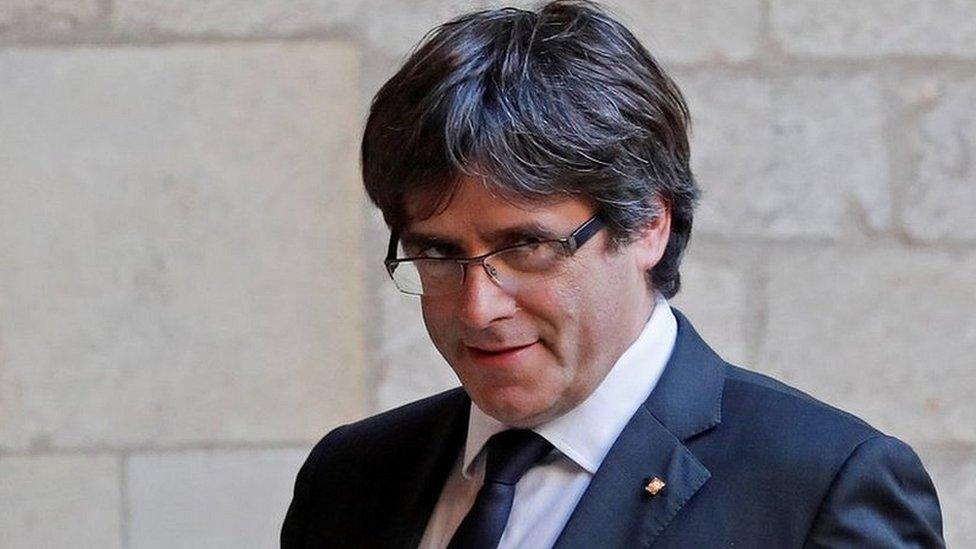Catalonia: Can Carles Puigdemont rule from Belgium?
- Published
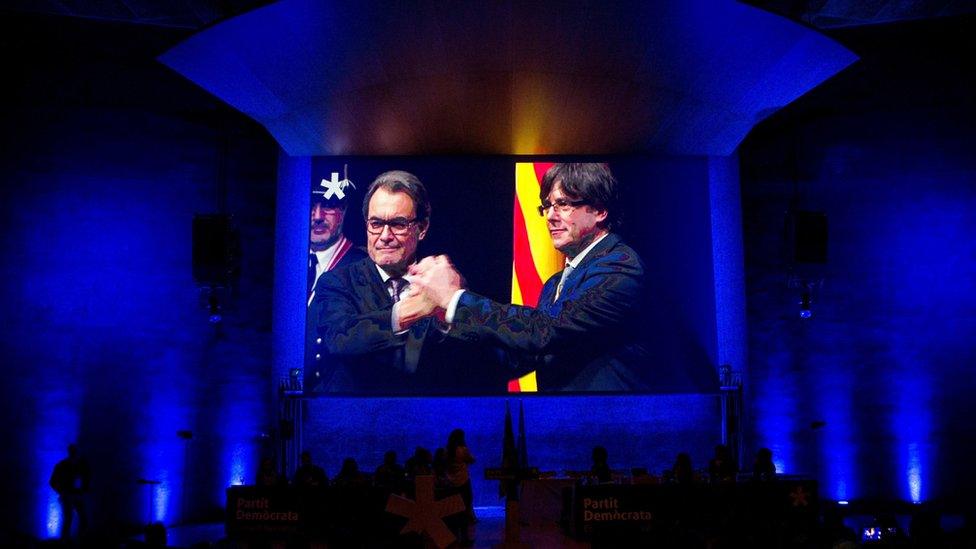
Carles Puigdemont (R) is in exile in Belgium
The Catalan parliament in Barcelona has been standing empty for 83 days. The only official business has been done by the cleaning staff, keeping the cobwebs away.
In October last year, the parliament chamber resounded with separatist songs of celebration when the whole cabinet sang in victory, after their illegal declaration of independence from Spain.
Since then, the only time the MPs' red-velvet chairs have been used has been for the odd school tour, with children in place of politicians walking around the ghostly stone palace, being told stories of the building's past, and about the present turbulence.
On Wednesday, Catalan MPs return for the re-opening of parliament, following the snap elections the Spanish government called in December. The region's three separatist parties are set to govern again, after they won 70 out of 135 available seats, enough collectively to rule as a coalition - if they can establish one.
Two things of note will begin to happen. Firstly, a parliamentary board will be voted for, and reflecting the election result that will mostly be made up of independence politicians.
Secondly, that board will be in charge of proposing the next president - but there is an unresolved problem. The board is likely to propose the ex-President Carles Puigdemont as leader again, despite the fact that he's 800 miles away in Belgium, in self-imposed exile. He is refusing to return because if he does, he faces arrest on sedition and rebellion allegations, which carry a potential prison sentence of up to 30 years.
But how the eight independence politicians still in prison or exile will be able to cast their votes - or operate in parliament when they're not present - is being questioned.
Mr Puigdemont's team believe he can rule from afar, via Skype, Facebook and social media if need be, although that has earned him the nickname the "hologram president" in the Spanish press.
In Barcelona, Mr Puigdemont's spokesman, Joan Maria Piqué, tells me it is perfectly plausible for him to be president remotely, and points to how Donald Trump uses Twitter as a prime source of interaction in the US.
Why is there a Catalan crisis? The answer is in its past, as Europe correspondent Gavin Lee explains
There has been a warning this week from Spain's Prime Minister, Mariano Rajoy, who says that any attempt to inaugurate Mr Puigdemont will lead to the continuation of emergency rule by Madrid.
Lawyers for the Catalan parliament council, an advisory body, have also said it would not be legal or within the Spanish constitution to allow for a president in exile.
Joan Maria Piqué dismisses both of these claims, and states that Mr Rajoy has no power to prevent a Puigdemont presidency.
In Madrid, a spokesman for the Partido Popular, Spain's governing party, tells me the situation has gone "from an independence crisis to a political farce". Ramón García says the Spanish government believes any political return for Carles Puigdemont will have to be decided by the Spanish Constitutional Court, and that it is likely to immediately suspend the decision to elect him while it investigates the legal possibility of remote rule.
After the Catalan board of seven MPs has assembled today, it has two weeks to nominate its president.
In contrast to the sound and fury of the recent months of protest and political discontent, it appears calm, for now, as the next more formal stage of the crisis plays out.
- Published22 December 2017
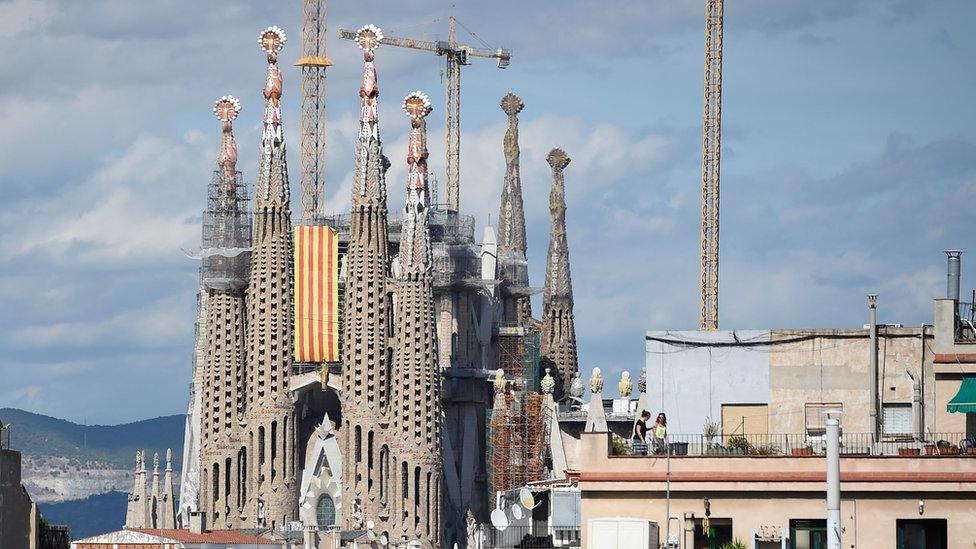
- Published22 December 2017
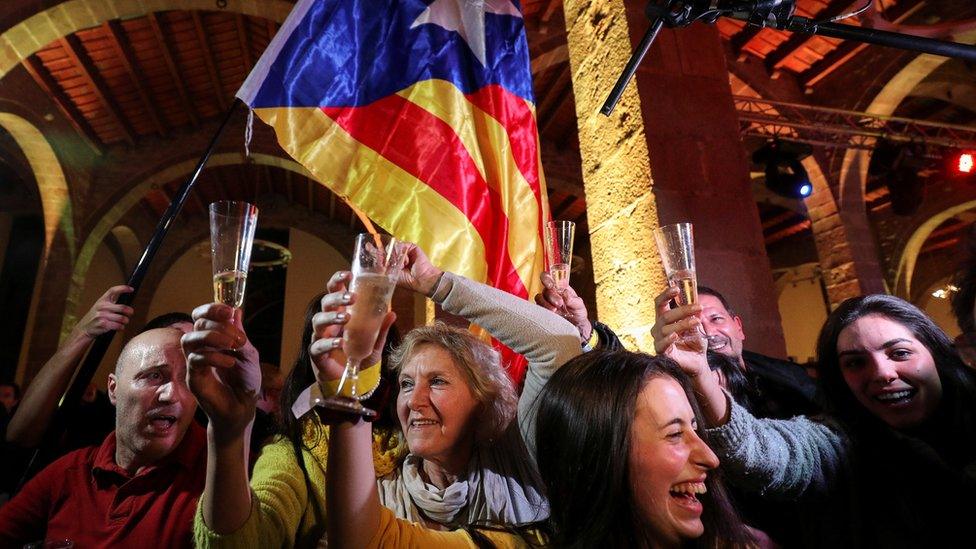
- Published16 October 2017
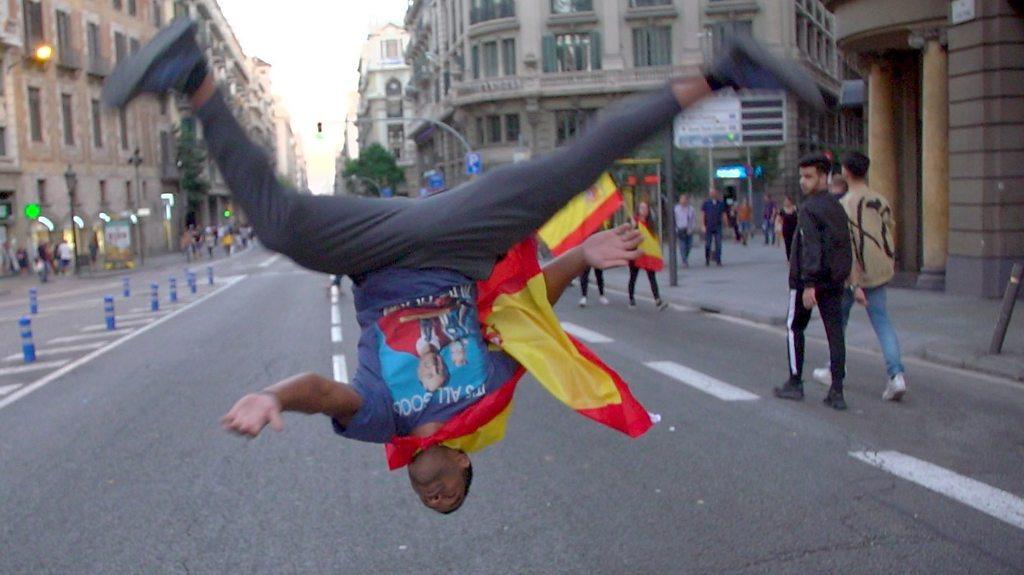
- Published26 March 2018
